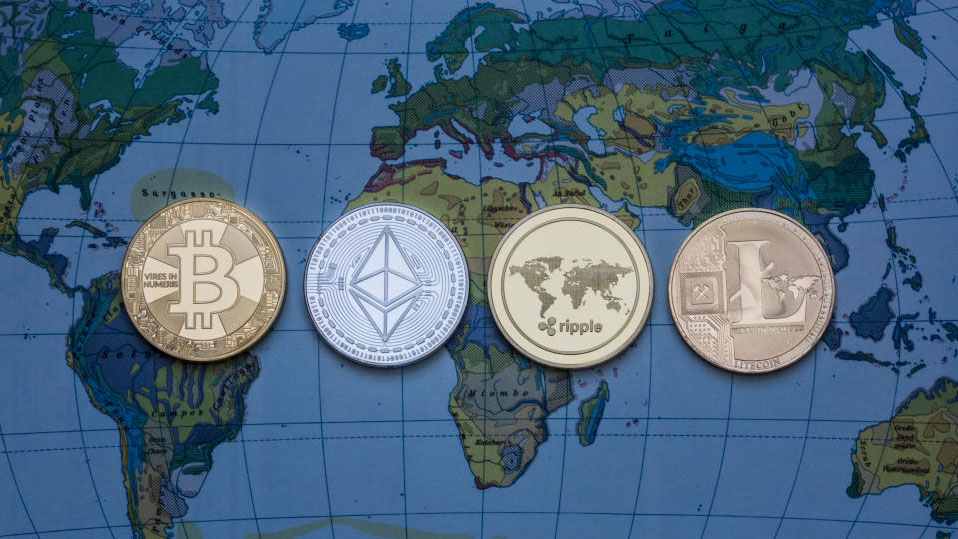
Many argue that the likes of bitcoin can play an important role in helping refugees and displaced people access financial services in their host countries. But others are more sceptical as to whether this is a viable solution. Bill Lumley reports.
As refugee numbers continue to increase around the world, such as those fleeing the war in Ukraine, cryptocurrencies continue to be touted as a practical solution to support displaced people. However, many in the industry are not convinced.
Proponents say that the likes of bitcoin enable financial inclusion for refugees in their host country. With a crypto wallet, they are unencumbered by the constraints of a central banking system — something that 21 human rights lawyers argued in a letter to the US Congress last month.
“Bitcoin provides financial inclusion and empowerment because it is open and permissionless,” they wrote. “Anyone on earth can use it. Bitcoin and stablecoins offer unparalleled access to the global economy for people in countries like Nigeria, Turkey or Argentina, where local currencies are collapsing, broken or cut off from the outside world.”
This letter follows a warning from 1500 IT specialists in cryptography and financial technology, urging a critical and sceptical approach towards claims that cryptocurrencies are an “unreservedly good” and innovative technology.
However, the human rights lawyers, many from developing countries, fired back that when currency catastrophes struck Cuba, Afghanistan and Venezuela, bitcoin gave their compatriots refuge.
“When crackdowns on civil liberties befell Nigeria, Belarus and Hong Kong, bitcoin helped keep the fight against authoritarianism afloat. After Russia invaded Ukraine, these technologies, which the critics allege are ‘not built for purpose’, played a role in sustaining democratic resistance — especially in the first few days, when legacy financial systems faltered.”
Cryptocurrency exchange and blockchain provider Binance launched its Refugee Crypto Card for Ukrainian refugees in April, allowing displaced Ukrainians to make or receive crypto payments and complete purchases at retailers in the European Economic Area. By the end of June, more than 100,000 such cards had been issued, says Elizabeth Li, deputy director of Binance Charity.
Scepticism
However, Jai Bifulco, chief commercial officer at Kinesis Money, a global trading and digital asset utility platform, is sceptical. “We need to get away from gimmicks and to start doing some real hard work in establishing proper banking connections and technology that will allow people to actually utilise the beauty of the blockchain,” he says. “We’re not quite there yet. It enables people to get into the system. However, their money is still based on an asset that is extremely volatile.”
Volatility does not lend itself to the realities faced by refugees. “Being a refugee is not an identity — it’s a circumstance,” says Nina Mohanty, founder and CEO of Bloom Money, a financial services platform for migrants. “Most refugees aren’t planning to have to flee home.” As such, they are not likely to have had the foresight or time to transfer their net worth into crypto before fleeing war.
She adds that most high street banks lack the risk appetite to accept anyone with an identity document from a politically or militarily unstable country. “If they’re not going to be able to do that, how is a crypto company going to be able to give me an on-ramp if I hold a Syrian passport or Palestinian travel documents, or even no documentation?”
Additionally, people fleeing their home country often do not have the foresight or time to grab identity documents such as passport or driver’s licence. In Ukraine, the central bank suspended electronic cash transfers on the first day of the Russian invasion in February.
Refugees or migrants coming to the UK or the US also find it hard enough even to get basic rights, so they are going to find it highly challenging to find anyone to provide them with a ramp to get into cryptocurrency to use it as a medium of exchange, she suggests.
While she is not anti-crypto, Ms Mohanty says she is not bullish on crypto as a solution for refugees and migrants. When it comes to store of value for people in a stable government, or in a stable society, holding savings in a cryptocurrency wallet is a good store of value, she says.
Crypto’s current volatility and downturn don’t make its viability as a solution for refugees any more legitimate.
“It’s the Wild West right now,” she adds. “If we can’t even make sure that there’s accountability for those most vulnerable people right now, how can we even credibly say that this is going to be a solution for refugees?”
As the world becomes more digital, and advances are made with Web3, holding value in a crypto wallet may become more commonplace. “But crypto has completely blown up in our faces,” she says. “I think we have perhaps a decade before people view it as a norm.”


